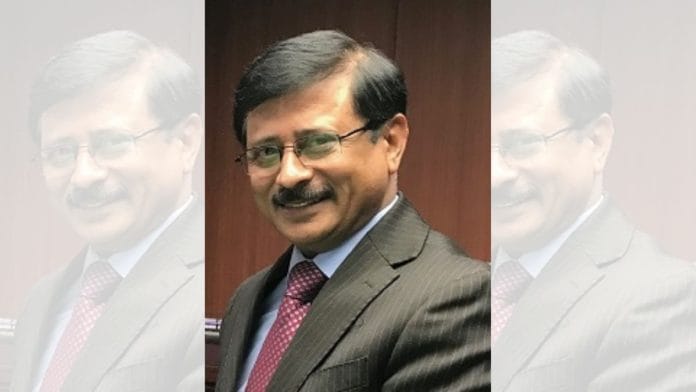New Delhi: The withdrawal of Sanjay Kumar Verma as high commissioner of India to Canada Monday by the Ministry of External Affairs (MEA) makes Canada possibly the first western country India has recalled an ambassador from. With this, Canada joins the small list of countries from which New Delhi has withdrawn its envoys or had them expelled. The other nations in the list are Pakistan, China and Fiji.
“Withdrawal of ambassadors is an extraordinary step taken only in exceptional circumstances when major differences exist between India and another country. It has happened numerous times with Pakistan and with China in the past, but to the best of my knowledge, never with a western country,” Avtar Singh Bhasin, former head of the MEA’s historical division, told ThePrint.
Canada sent a communication to India Sunday (13 October), requesting the waiver of diplomatic immunity of Verma and five other diplomats, and for their cooperation in the investigation into the killing of India-designated terrorist Hardeep Singh Nijjar.
India reacted strongly to the request, rejecting Canada’s “preposterous imputations” and ascribing them to the “political agenda of the Trudeau government that is centered around vote bank politics”.
Later Monday, India announced the withdrawal of Verma and five other diplomats from Canada. The extraordinary step was followed by the expulsion of Canadian Chargé d’Affaires Stewart Wheeler, Deputy High Commissioner Patrick Hebert, and four other diplomats from India. They have been given time till Saturday (19 October) to depart the country.
In a conflicting statement hours later, Ottawa announced that it was expelling Verma and five other diplomats from Canada. While expulsion of diplomats is rare in nature, it is even rarer for an ambassador to be withdrawn.
In 2023, India and Canada, in a tit-for-tat exercise, each expelled an individual diplomat from the other country, both of whom were believed to be the station head of their respective intelligence agencies at the respective high commissions. But expulsions are rarely escalated to the ambassadorial level.
India’s expulsion of Olivier Sylvestre in 2023 marked the first instance of a western diplomat being ordered to leave the country since 2014—an indication of how rare such orders are.
However, at the ambassadorial level, Canada now joins the ignominious list of Pakistan, China and Fiji.
Also Read: Canada says all actions including diplomatic sanctions on table, gives no evidence on Nijjar killing
What happened in Pakistan
It has been common enough for India and Pakistan to withdraw high commissioners from their respective countries and downgrade diplomatic ties. Most recently, in 2019, Islamabad downgraded its ties with India, following the abrogation of Article 370 and the bifurcation of Jammu and Kashmir.
Ajay Bisaria, the Indian high commissioner to Pakistan at the time, was expelled from the country and returned to India on 11 August 2019. Islamabad also put on hold its own appointment of a new high commissioner to New Delhi. Diplomatic ties have not recovered since, with the respective high commissions led by chargés d’affaires.
This, however, was not the first time, that diplomatic ties between the two subcontinental countries had been suspended or downgraded. Ties between the two nations were also suspended between 1971—when they were at war—and 1976.
In 1971, J.K Atal was India’s high commissioner to Pakistan before his departure. In 1976, K.S Bajpai was given this post.
While diplomatic ties remained active, they were eventually affected in 2001, in the aftermath of a terrorist attack on the Indian Parliament in December that year.
At the time, Vijay K. Nambiar, India’s high commissioner to Pakistan, was recalled by New Delhi. Eventually, 18 months later, ties were normalised, with Shivshankar Menon being appointed New Delhi’s envoy to Islamabad in July 2003.
China and Fiji
In 1950, India became the first non-communist country in Asia to open diplomatic relations with the newly founded People’s Republic of China (PRC). However, in July 1961, New Delhi withdrew its ambassador from Beijing as disputes arose over the border between the two countries.
The border dispute between India and China eventually broke out into an all-out war in 1962. In November that year, China unilaterally declared a ceasefire and withdrew its troops behind the Line of Actual Control (LAC).
However, ties between the two countries at the ambassadorial level did not resume until April 1976, when the then Indian prime minister, Indira Gandhi, announced the appointment of K.R. Narayanan—who went on to be India’s President in 1997—as New Delhi’s envoy to Beijing.
For 15 years, India and China maintained skeletal missions in their respective countries, each headed by a charge d’affaires. While diplomatic ties between the two countries have remained at the same level, Beijing took almost 19 months between 2022 and 2024 to appoint a new ambassador to India. The current envoy, Xu Feihong, was appointed in May 2024.
Another instance in which diplomatic relations between India and another country broke down was with Fiji in 1987. The Pacific Island nation, where many people of Indian ethnicity live, faced a coup by the military in May 1987 after an election had brought an Indo-Fijian dominated government to power.
Colonel Sitiveni Rabuka—the third ranking officer of the Republic of Fiji Military Forces—assumed power in 1987 and began a policy to disenfranchise Indo-Fijians in the country. India’s then prime minister, Rajiv Gandhi, moved to have the country expelled from the Commonwealth of Nations and took up the issue at the United Nations.
In retaliation, T.P. Sreenivasan, the then High Commissioner of India to Fiji, was expelled by Rabuka and ordered to return to India within 72 hours in 1989, after two years of attempting to defend the interests of the Indian community living in the country.
(Edited by Radifah Kabir)
Also Read: Canadian police link Indian diplomats to murder & extortion, say Bishnoi gang working with Delhi






